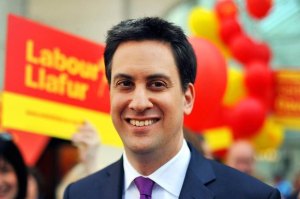Checkout this message to help simulate a debate:
How many times have all heard the words like we can’t afford the National Minimum Wage as it will cripple our business? The National Minimum Act came in thanks to a Labour Government we have seen many companies now paying £6:31 per hour.
 Fast forward it to a coalition government in 2010 and Labour in opposition wants to implement the Living Wage and no guesses what the business communities has to say, yes you guess it “We can’t afford the living wages”
Fast forward it to a coalition government in 2010 and Labour in opposition wants to implement the Living Wage and no guesses what the business communities has to say, yes you guess it “We can’t afford the living wages”
I have to declare a conflict of interest I am very much in support the living wage and likewise to the national minimum wage to which I make no apologies for saying this was it has made a difference to low paid workers and if the business communities had its way they will continue to refuse to recognize it. Thanks to the trade unions,TUC, and public lobbying a Labour government to implementing into law.
 The business communities may ask me this question have you ever ran your own business?
The business communities may ask me this question have you ever ran your own business?
The answer is yes I have and I did increased the productively but unfortunately I and two other directors had to close our doors to the public owing to the lack of central and local government funding which forced us to close which we lost thousands of pounds and let our staff go. So I will not take any lectures from fatcats on how to run a business.
 Recently I read very good article from Labourlist who was trying to stimulate a debate which on further investigating into it, it made sense. For whatever disagreements my followers may have with the think-tank I always remember the wise words from my parents as a youth growing up “Pick Sense Out Of Nonsense”
Recently I read very good article from Labourlist who was trying to stimulate a debate which on further investigating into it, it made sense. For whatever disagreements my followers may have with the think-tank I always remember the wise words from my parents as a youth growing up “Pick Sense Out Of Nonsense”
See article below and hopefully we all can have a healthy debate:
Checkout:
In an interview with the Independent on Sunday, Ed Miliband has announced plans to give a tax break incentive to businesses for every employee who has their salary raised to the minimum wage. This is how the party are explaining the scheme:
Firms which sign up to paying the Living Wage at the start of the Parliament will benefit from a 12-month tax rebate of up to £1,000 – and an average of £445 – for every low paid worker who get a pay rise.
The measure will be entirely funded from the increased tax and National Insurance revenue received by the Treasury when employees receive higher wages. Additional savings in lower tax credits and benefit payments, as well as increased tax revenues in future years, will cut social security bills and help pay down the deficit.
According to the party, such a scheme would save the government money in lower social security payments and higher taxes – as well as seeing businesses get cash for every worker they pay a decent wage.
 Looking ahead to implementation, Miliband has approached Alan Buckle – deputy chairman of KPMG – to work with businesses “on the detailed implementation of this scheme as part of his Review on Low Pay”. The “Buckle Review” will also examine other measures to strengthen the Minimum Wage and encourage greater use of the Living Wage.
Looking ahead to implementation, Miliband has approached Alan Buckle – deputy chairman of KPMG – to work with businesses “on the detailed implementation of this scheme as part of his Review on Low Pay”. The “Buckle Review” will also examine other measures to strengthen the Minimum Wage and encourage greater use of the Living Wage.
Raising the national minimum wage to the Living Wage would lead to more jobs being created in the UK economy, not less.
 This is a view which flies in the face of conventional wisdom. Time after time journalists, politicians and commentators have proclaimed that, nice as it would be to raise the statutory minimum to the same level as the widely recognised Living Wage, it simply cannot be done. Too many jobs would be lost, they say. Poverty wages are the price we must pay for higher employment.
This is a view which flies in the face of conventional wisdom. Time after time journalists, politicians and commentators have proclaimed that, nice as it would be to raise the statutory minimum to the same level as the widely recognised Living Wage, it simply cannot be done. Too many jobs would be lost, they say. Poverty wages are the price we must pay for higher employment.
Unlike previous research, today’s Landman Economics Report looks at what would happen to the jobs market as a result of the stimulus to the economy from raising the pay of millions of low paid workers to the Living Wage. More people spending money in local shops and a reduction in the amount the government needs to spend on in-work benefits. The report finds that, when you take this into account, shifting the NMW up to the Living Wage could create an extra 58,000 jobs.
The report’s author, Howard Reed is a former programme director at the IFS. He concludes:
“it is unlikely that the extension of the Living Wage to all UK employees would result in any substantial aggregate employment losses. In fact, it is quite plausible that adopting the living wage on a statutory basis could actually increase overall employment in the UK.”
And to those who say that the Living Wage must remain a voluntary, moral marker, independent of the national minimum wage, I say now is the time to shift your position. Local living Wage campaigns across the UK, including by my union UNISON, have been the foundation stone of the Living Wage movement.
We are only having this debate now because of all that hard work.
But we cannot escape facts. During the period in which the Living Wage has come to prominence, the number of people earning poverty wages has gone through the roof, now standing at 4.8 million. When 20% of the working population can’t make ends meet, we need a bigger solution which recognises the size of the problem.
UNISON members now look to a future Labour Government to step up to the mark. The red-herring of unemployment is no longer available to those who oppose a National Living Wage. Yesterday’s announcement of tax breaks for firms paying the Living Wage is a step in the right direction, but the eventual destination needs to be a Living Wage for all.
Britain’s millions of low paid workers desperately need a pay rise and there is no doubt that this would be popular policy which could cut through the Westminster background noise. 60% of the general public support the change, with significant support even among Liberal Democrat and Conservative voters.
The popularity of this move will only grow further as a result of this new research . People now know that this policy is not just the right thing to do, it is also the smart thing to do. Let’s finally put an end to the absurdity of trying to build our economy on poverty wages.
You must be logged in to post a comment.